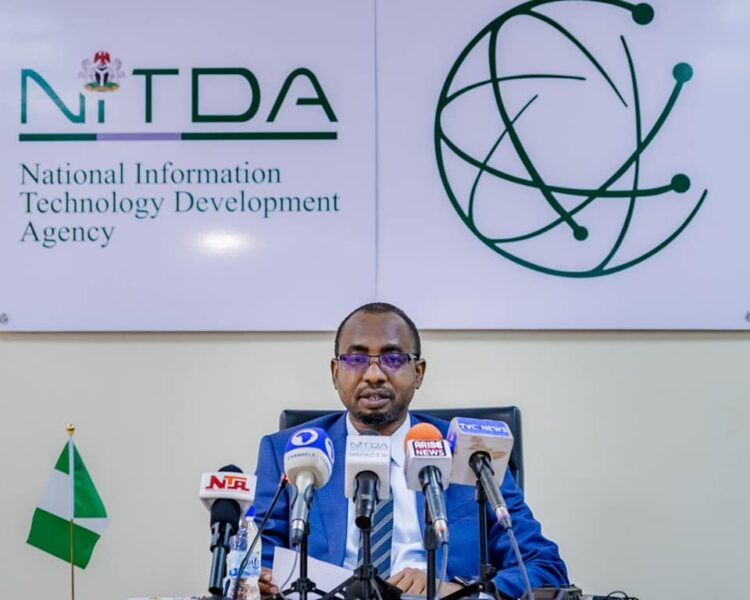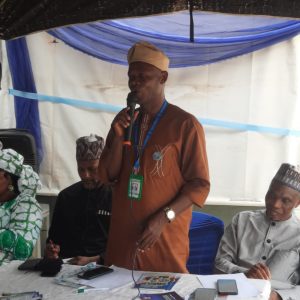NITDA Unveils SRAP, Aiming to Raise Nigeria’s Digital Literacy Rate to 70% by 2027

The National Information Technology Development Agency (NITDA) has unveiled its Strategic Roadmap and Action Plan (SRAP 2.0.) targeting 70% digital literacy by 2027, among other pillars.
The Director General of NITDA, Kashifu Inuwa, who disclosed this during the Omniverse Summit, held in Lagos, said the roadmap focuses on eight strategic pillars, targeted at accelerating the digital transformation of all critical sectors of the economy as directed by President Bola Ahmed Tinubu.
He revealed that the first pillar, fostering digital literacy and cultivating talent has an ambitious goal of achieving 70% digital literacy by 2027 through the implementation of the National Digital Literacy Framework.
This pillar, he said, also includes developing technical talents which is being implemented through one of the Ministry’s initiatives “the 3 Million Technical Talent (3MTT)”, designed to address the impending global talent deficit and position Nigeria as a leader in technological expertise.
The NITDA DG noted that all the pillars in the SRAP 2.0 resonate with the strategic pillars of the Ministry of Communications, Innovations and Digital Economy blueprint tagged “Accelerating our Collective Prosperity through Technical Efficiency” which are Knowledge, Policy, Infrastructure, Innovation, entrepreneurship, and Capital, and Trade.
“The second pillar is to build a robust technology research system, aimed at putting Nigeria at the 25 percentile in global ranking in research in six key areas of AI, IoT, Robotics, Additive Manufacturing, blockchain, and UAVs.
“The third pillar emphasizes the need to strengthen policy implementation and legal framework, with all ecosystem stakeholders contributing to achieving national goals.
“Promoting inclusive access to digital infrastructure and services forms the fourth pillar which aims at connecting the unconnected by investing in learning centres and innovation hubs across the country.
“Strengthening Cybersecurity and enhancing digital trust is the fifth pillar. This addresses the importance of instilling confidence in digital platforms for its users,” he said.
He identified the sixth pillar as focusing on plans to nurture an innovative and entrepreneurial ecosystem, which will promote synergy in the industry and an enabling platform for digital transformation.
“While the seventh pillar is to forge strategic partnerships, and collaborations with external stakeholders as evident with the active partnership NITDA is building with the Omniverse platform, the eighth and last pillar of the SRAP is directed to cultivate a vibrant organizational culture and agile workforce within NITDA, he added.
Inuwa assured the commitment of the government to create enabling policies for citizens to thrive.
According to him, part of the strategic aims of the roadmap is to position Nigeria among the top 25 in artificial intelligence, IoT, UAV, robotics, Blockchain, and additive manufacturing, propelling the nation into a prominent role in the global digital economy.
According to him, NITDA’s vision for Nigeria is to digitally empower the nation by thriving on innovation and fostering inclusive economic growth through technology.
The Omniverse Summit was targeted at driving the digital economy on the continent. The summit explores the narratives about Africa and Africans, with a focus on how to regain control of these narratives to re-frame the future of our economies, societies, and geopolitics.









